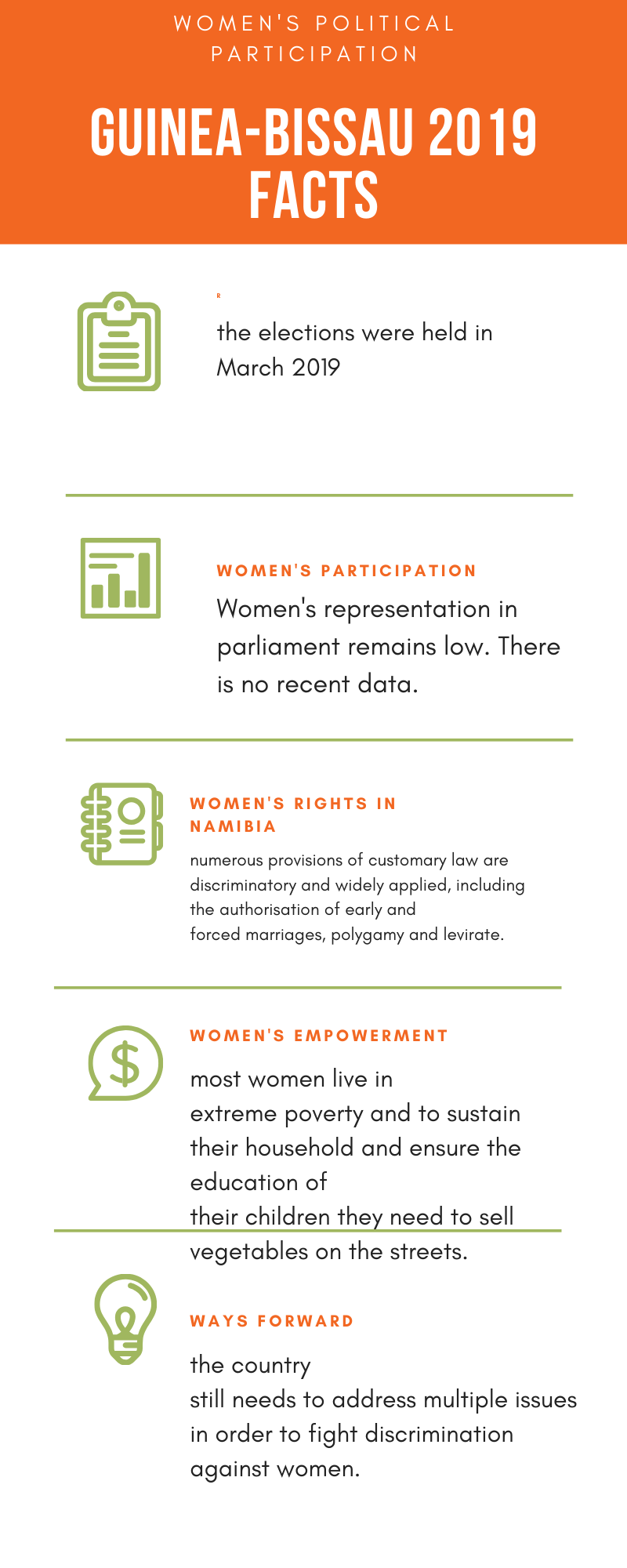The legislative elections were held in 10 March 2019, even though they were originally scheduled for 18 November 2018.
Despite the fact that on 14 April, 2018 an ECOWAS brokered agreement was signed between President José Mário Vaz and the opposition, the electoral census was completed the 20th of Novermber. The PAIGC — the African Party for the Independence of Guinea and Cape Verde —, which has been dominating politics since 1974, won 47 out of 102 seats according to the National Election Commission. The United Nations, as expressed in a recent Secretary-General’s report, has high hopes that this vote will help to end the political crisis that has rocked the country since 2015. When it comes to the country’s electoral system, the People’s National Assembly (Assembleia Nacional Popular) is unicameral. There are 27 multi-member constituencies in the country and 2 single-member constituencies for two seats are reserved for Guinea-Bissau citizens living abroad. Moreover, in Guinea-Bissau women represent 51 percent of the population but are still underrepresented in the political sphere.
Women’s political participation
Women’s representation in parliament remains low: in 2010, women held 10% of the seats in parliament. By 2012, the number increased to 14% where it remained until the next election. Following the 2014 election, the proportion of women in parliament dropped slightly to 13.7% where it remains. There is still no data available on the last elections.
On 2 May 2019, the country adopted a Law on Parity according to which women must make fifty per cent of the candidate lists for elective positions. Article 2 of the Law stipulates that: "Parity applies to any list of candidates for national and local elections, as well as for the holding of elective offices in public institutions". The new law signals strong intention to expand women’s political leadership throughout the country: Article 3 and Article 6 of the Law specify that list of candidates must be alternately composed of candidates of both sexes and that lists are not admissible unless this condition is fulfilled.
Nonetheless, society in Guinea-Bissau remains deeply patriarchal: numerous provisions of customary law are discriminatory and widely applied, including the authorisation of early and forced marriages, polygamy and levirate. To address the practice of FGM/C, the Government of Guinea-Bissau adopted the Law to Prevent, Fight and Suppress Female Genital Mutilation (Law No. 14/2011) FGM/C, which prohibits FGM/C, making the practice punishable by a five-year prison sentence and a fine of up to five million CFA francs ($8,666).
Conclusion
Being a woman in Guinea-Bissau means living a hard life, since most women live in extreme poverty and to ensure the education of their children they need to sell vegetables, fish, or clothing on the streets. This situation makes access to politics for Guinean women a daunting task. Despite the fact that the new Law guarantees women’s participation in the public sphere, the country still needs to address multiple issues in order to fight discrimination against women.

